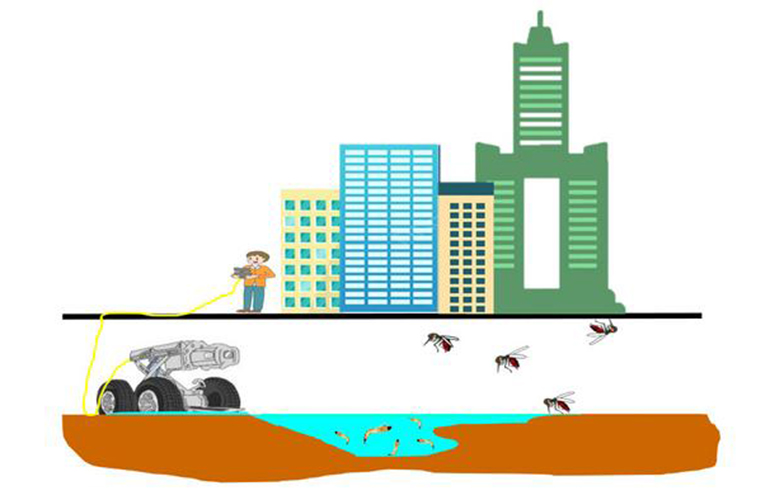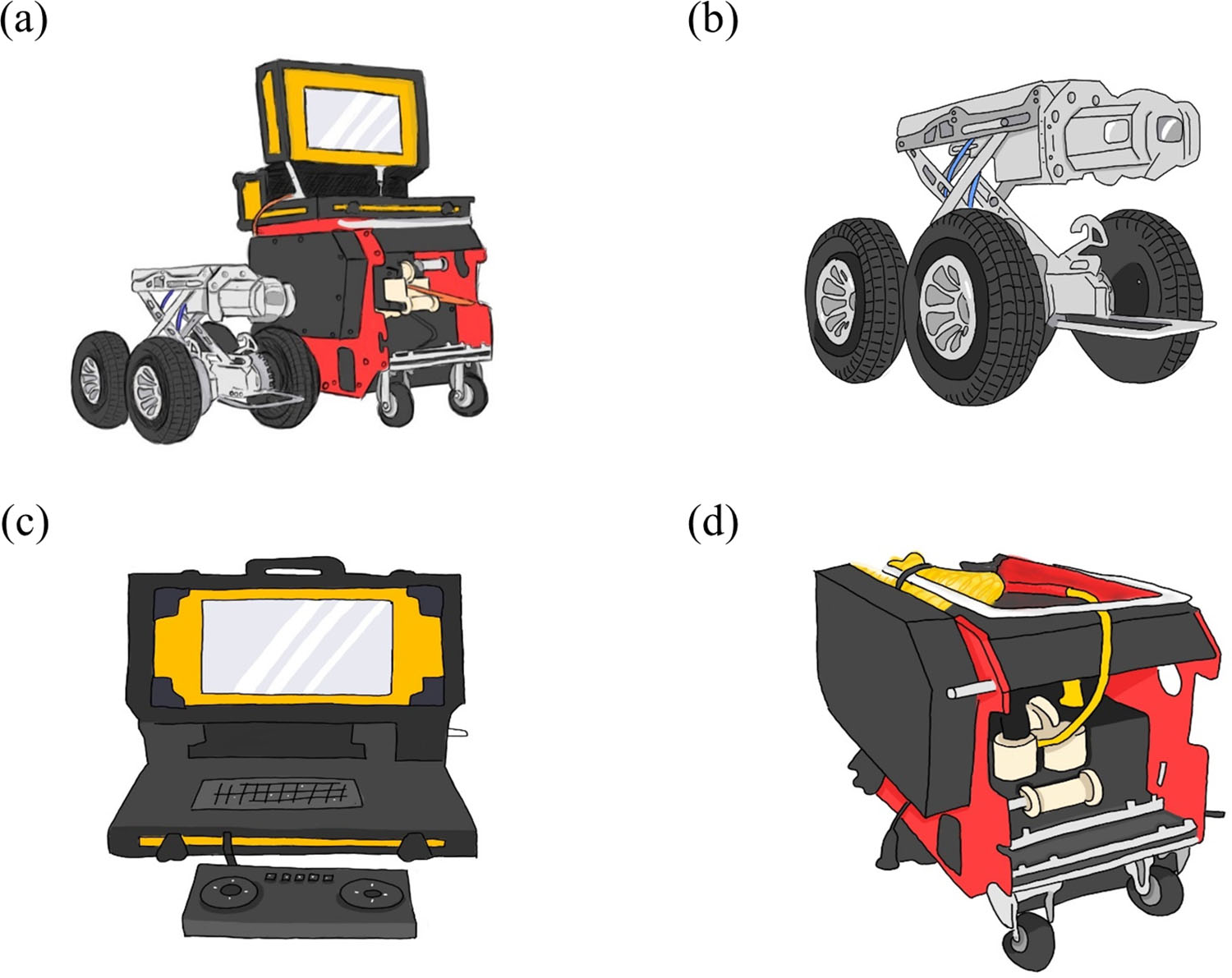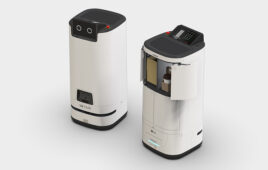|
Listen to this article
|

An artist’s rendition of the experiment setup. | Source: Chen Y-X, Pan C-Y, Chen B-Y, Jeng S-W, Chen C-H, Huang J-J, et al
Unmanned ground vehicles (UGVs) can help fight dengue-carrying mosquitoes in Taiwan sewers, according to a new study published in PLOS Neglected Tropic Diseases by Wei-Liang Liu of the Taiwan National Mosquito-Borne Diseases Control Research Center and colleagues.
In the study, researchers combined a crawling robot, wire-controlled cable car, and real-time monitoring system into a UGV that takes high-resolution, real-time images of areas within Taiwan’s sewer system. Specifically, the UGV targeted covered roadside ditches that were suspected to be hotspots for mosquitoes carrying dengue fever.

Schematic diagrams of the UGV equipment, which includes a crawling robot, a monitoring system, and a wire-controlled cable car. | Source: Chen Y-X, Pan C-Y, Chen B-Y, Jeng S-W, Chen C-H, Huang J-J, et al
Dengue fever is an infectious disease caused by the dengue virus that is spread by several mosquito species that are part of the genius Aedes, which can also spread chikungunya, yellow fever, and zika. The World Health Organization estimates that 390 million people worldwide are infected with dengue fever manually.
Sewers make easy breeding grounds for Aedes mosquitoes, and the most common mosquito monitoring programs struggle to monitor and analyze the density of mosquitoes in hidden areas, like covered ditches.
The robot system created by the researchers was deployed in five administrative districts in Kaohsiung City, Taiwan from May to August 2018. The UGVs found traces of Aedes mosquitoes in stages from larvae to adults in 20.7% of inspected sewers.
Using the information gathered from the robots, researchers could follow up with additional prevention control measures, including insecticides of high-temperature water jets, in sewers where mosquitoes were found.
After those interventions, the gravitrap index (GI), a metric that measures the adult mosquito population density nearby, dropped from 0.62 to 0.19.
“The widespread use of UGVs can potentially eliminate some of the breeding sources of vector mosquitoes, thereby reducing the annual prevalence of dengue fever in Kaohsiung City,” the authors said.






Tell Us What You Think!